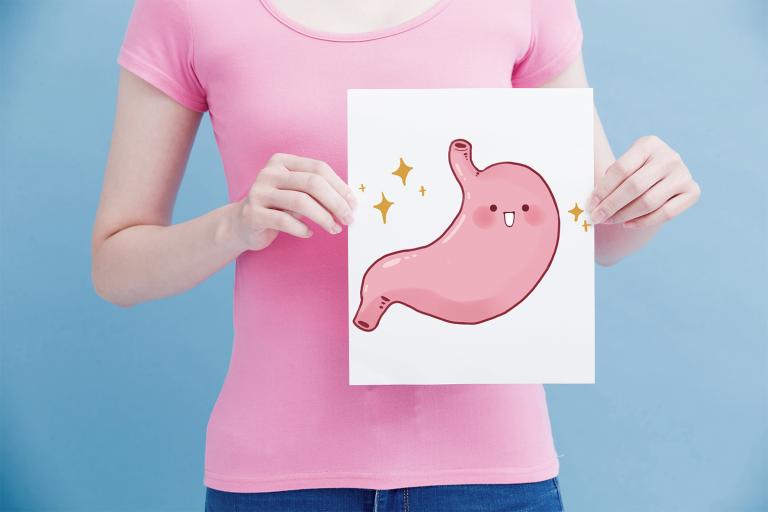Crohn’s disease and colitis are serious, complex, and potentially debilitating inflammatory bowel diseases (IBD) that affect more than one million Americans.
Symptoms of IBD
They are characterized by physical damage and inflammation in the intestinal lining and both systemic and gastrointestinal symptoms
- diarrhea
- cramps
- digestive upset
- fatigue
- malnutrition
- unhealthy weight loss
Even though IBD can be life threatening and often requires medical treatment, it also tends to be responsive to diet changes, supplements, and herbs.
Our holistic goals are multifaceted:
- address nutrient deficiencies
- decrease inflammation
- decrease immune dysfunction
- heal the gut
...and, overall, to encourage healthy digestion and elimination.
How to Maintain Gut Health with IBD
-
Avoid Problematic Foods
Most holistic practitioners and patients find avoiding problematic foods is the most dramatic and effective way to get IBD under control.
People with IBD often have underlying food allergies, intolerances, and sensitivities, which cause digestive discomfort and may also increase inflammation and the body’s autoimmune response.
Common problematic foods include coffee, gluten/wheat, dairy, and eggs, but people vary widely. You need to avoid only foods that actually bother you; no one diet works for everyone.
Elimination-Rechallenge Dieting
Consider an elimination-rechallenge diet and/or immunoglobulin G (IgG) food allergy and celiac disease testing to sleuth it out. Start by avoiding anything that irritates.
After you heal your gut and are symptom-free for several months, you may find you can reintroduce some foods without issue.
-
Address Nutrient Deficiencies
Nutrient deficiencies and malnutrition are common in IBD, especially Crohn’s. Food moves too quickly through the digestive tract, and poor intestinal lining impairs the ability to absorb nutrients. Eating nutrient-dense yet easily digestible foods, plus taking targeted supplements, can help improve energy levels, immune function, gut repair, and vitality.
Common nutrient deficiencies in IBD include:
- vitamin B12
- vitamin D
- folate
- calcium
- magnesium
- zinc
- iron
Start with a good-quality multivitamin/mineral designed for easy absorption. You may find you need additional specific supplements.
Before taking iron or megadoses of other nutrients, have your levels tested.
-
Boost Good Bacteria
Probiotics are gut-healing allies. Beneficial bacteria help maintain good gut health and function, decrease inflammation, improve nutrient absorption, and encourage healthy immune function. Increasing research suggests that supplementing the diet with probiotics gradually shifts gut ecology for the better.
- Consider a high-potency product that delivers both Lactobacillus and Bifidobacterium.
- Eat more fermented vegetables:
- kimchi and live sauerkraut
- miso (fermented soybean paste) soup
- yogurt and kefir (if you’re not dairy sensitive)
- Ginger root encourages beneficial bacteria while fighting pathogens.
- Fiber from food or supplements promotes good bacteria and helps normalize bowel movements and decreases IBD and colon cancer risk.
-
Deal with Pathogens
IBD and dysbiosis, an overabundance of pathogenic gut bacteria and yeasts, go hand in hand, worsening each other.
Herbs for Pathogens and Dysbiosis
If you have signs of pathogens and dysbiosis, the following herbs are used specifically and temporarily to deal with them:
- high-berberine plants
- goldenseal
- Oregon grape root
- coptis
- barberry
- oregano-like plants
- bee balm
- thyme
- pau d’arco
- clove
- ginger
- cinnamon
- garlic
- tannin-rich plants
- various Rumex species
- oak
- alder
Unlike antibiotic medications, these natural remedies are less likely to compromise good bacteria. You may want a practitioner’s guidance for pathogen identification and treatment options.
- high-berberine plants
-
Heal the Gut
Promoting gut repair is an important aspect of managing IBD that conventional medicine ignores.
-
Slimy Herbs
Slimy herbs are gut-healing stars because they soothe inflamed gut lining and promote tissue healing: licorice, slippery elm, marshmallow root, and aloe inner gel.
(Aloe latex is a laxative and a gut irritant—counterproductive for IBD. Avoid whole-leaf preparations.)
The slimy demulcent and mucilaginous properties of these plants are best extracted in water:
- steep teas overnight
- add them to drink mixes
- try chewable tablets
-
Licorice
Licorice heals the gut in multiple ways, but it can also cause hypertension and kidney issues when taken in high doses or long term. The offending compound is removed from DGL tablets, offering most of the healing properties without the safety concerns.
-
Supplements
On the supplement front, the amino acid glutamine encourages gut repair, as do butyrate, silica/horsetail, gelatin, collagen, and bone broth.
It takes time to heal the gut. You may notice immediate improvement, but these remedies should be taken long term, until you’ve been symptom-free for several months.
-

